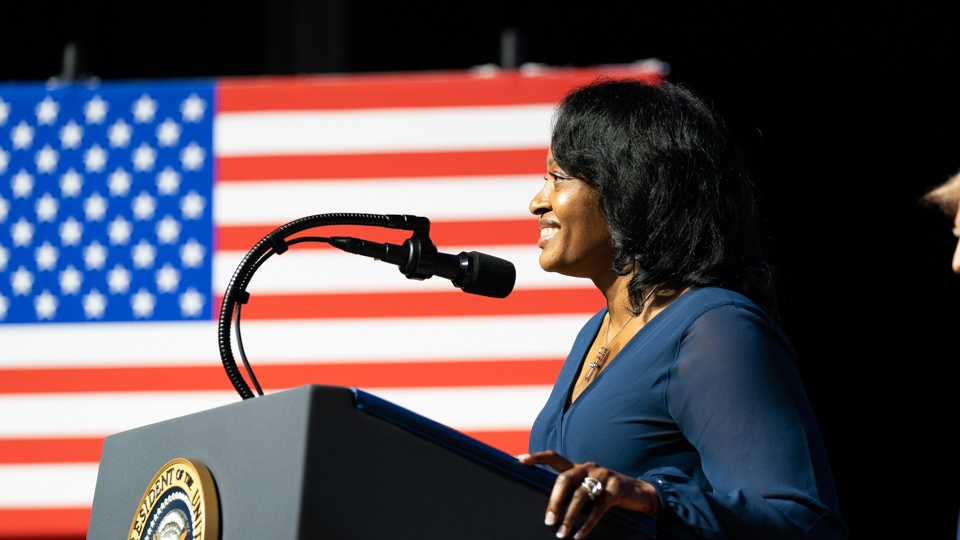Tanesha Bannister spent nearly two decades in federal prison, but Wednesday was the first time in 16 years she was able to hold her grandson on Christmas Day. In a radio interview with WBUR, the South Carolina native told her story and explained what life has been like since her release in May.
Bannister is part of a generation of Black women and men harshly sentenced under the "100-to-1" laws.
The "100-1" rules meant that for decades, people who sold small amounts of crack got longer sentences. Historians often note the racial implications of the laws which were used to hand out overly harsh sentences to Black people for relatively minor charges.
The stark discrepancies in sentencing, which led to hundreds of thousands of life sentences countrywide over the last three decades, was only addressed in 2010 by the Fair Sentencing Act. The First Step Act, signed into law by President Trump in December 2018, retroactively applied the new sentences in the Fair Sentencing Act to cases like Bannister's.
After being arrested in 2002, the 43-year-old mother of two was given a life sentence on a charge of conspiracy to sell 50 grams of crack and 5 kilos or more of cocaine. Her children were 8 and 10 years old when she first went to prison.
She filed an appeal, and in 2008, had her sentence reduced to 23 years. Once the First Step Act came into effect, she was released in May along with more than 3,000 others.
"It is such an exciting time in my life. To be able to sit down at a table with family and friends after so long and enjoy Christmas with them and my 2-year-old grandson, is a feeling that is indescribable, I wouldn't trade it for anything in the world," she told WBUR.
"It's such a relief, not just to myself but to my family and friends. As you know, things trickle down, when things happen to one person in a family. It was like my family was doing time. It was a great relief when I got immediate release on May 1. I'm grateful for the First Step Act and the ones that played an intricate part in making it happen," she said, adding that the first thing she wanted to do was see her kids and hold her grandson.
Since her release, Bannister has tried her hand at cosmetology but has moved on to become a personal care assistant for the elderly and disabled.
In October, she spoke on stage after an introduction by President Trump at the 20/20 Bipartisan Justice Center's Symposium in South Carolina, thanking both parties for putting their grievances aside and getting the desperately-needed law passed.
"I know people have mixed feelings about the President, but there's one common goal when it comes to prison reform that I believe we can stand on, and that was the historic signing of the First Step Act. If it wasn't for the president, I would still be serving five years," she said.
Bannister said she was overjoyed to be home with family again but was honest about the difficulties of coming back after a long prison sentence. Many of her family members had died and her children, who are now 24 and 26, struggled without her.
In a clemency profile of her, she said she began selling drugs in order to provide for her children, not realizing the drastic sentences that would be levied against her.
"I wanted to give my kids nice things and not be as poor as I was. Never in a million years did I think the punishment would be so grave. I have never been in major trouble before but with one possession charge in state court 10 years prior, in which I paid a $300 fine with no jail time, had me looking at 20 years to life mandatory in the federal system," she wrote.
"If I was re-sentenced today I would have get 15 years and 6 months, which I have done that and more with good time. I have learned from my mistakes and paid the price for the last 14 years not only for myself but my 2 children have suffered, greatly," she added.
In prison, Bannister earned her GED and attended Tallahassee Community College for Business Management. She completed over 100 ACE classes and studied to become a certified personal trainer gaining a Cosmetology License in the State of Florida.
“I felt like I wanted to kiss the ground. It’s like different air that you breathe,” she said.
